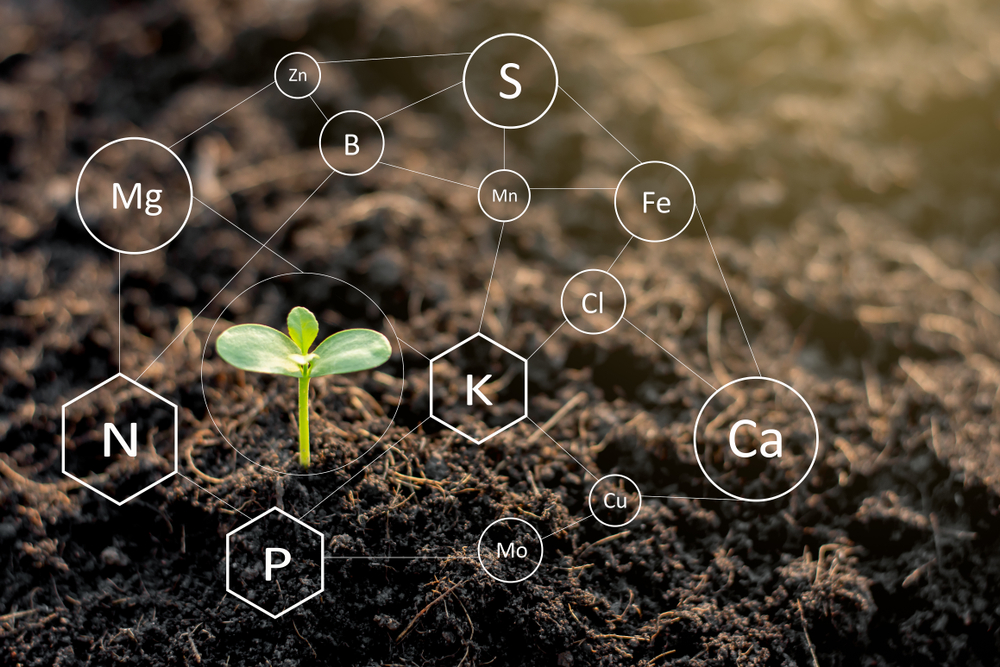Generally, the body's nutritional needs (in macro and micro nutrients) are met by food.
Namely, all foods that a person eats include a distinct proportion of micronutrients. What are the components of these micronutrients? What are their uses? And what proportions are vital to the body's proper functioning?
What you need to know about micronutrients
Food provides two kinds of nutrients, both of which are essential. There are the so-called "macronutrients", which are carbohydrates, proteins and fats. The latter are used to supply calories, i. e. the energy that is essential for the body to function.
The second type is that which has no energy role, called "micronutrients". However, this nutrient is essential for all chemical reactions. It should be noted that they are certainly important for the maintenance of life, even if their presence is in minute quantities, or even only around 2% of the diet.
It should also be noted that a slight deficiency of a micronutrient can lead to health problems that will result in disease if the deficiency is severe.
Micronutrients are classified into 4 groups:
- vitamins
- minerals and trace elements
- essential fatty acids
- Some micronutrients are said to be "essential" because they cannot be made up by the body, which means that they must be provided by the diet.
VITAMINS
Vitamins are substances that the body is not able to produce. However, they are essential elements for the body. They must therefore be obtained from the diet.
Vitamin A, vitamin C and vitamin E are powerful antioxidants. Indeed, they are essential for cell renewal, to fight against ageing but also to eliminate toxins in the body.
It should be noted that a vitamin deficiency can lead to a reduction in immune function, and encourage the appearance of age-related processes such as osteoporosis, atherosclerosis, dementia and even cancer. Therefore, it is necessary to have a rich and diversified diet to avoid any deficiency.
On the other hand, it should not be forgotten that an excess of vitamins generates free radicals. The most important thing is to maintain an optimal intake and to always ask a specialist for advice before taking supplements if necessary.
MINERALS AND TRACE ELEMENTS
As with vitamins,minerals and trace elements do not provide energy but the life of the body's cells depends on them, so their roles are also vital.
As far as minerals are concerned, they can be found in all foods. The most important ones are: sodium, potassium, iron, calcium, magnesium and phosphorus, which are essential for all organs, but especially the brain.
As for the trace elements, including iodine, copper, chlorine, cobalt, zinc, fluorine, manganese and selenium, they participate in the activity of enzymes and hormones. The body obtains them from the food, as it cannot produce them itself.
It is therefore important to ensure a diet that regularly provides sufficient quantities of these micronutrients in order to maintain an ideal intake and prevent any deficiency. To do this, you just need to eat a balanced diet and at the same time maintain a varied diet.
It should also be remembered that in order to preserve the minerals and trace elements in food, care must be taken with the way it is prepared and cooked.
They are destroyed by refining and cooking at high temperatures such as in a pressure cooker. Ideally, therefore, you should opt for steaming or stewing, for example.
ESSENTIAL FATTY ACIDS
As with the other micronutrients mentioned above, the body cannot synthesise essential fatty acids. They must therefore be provided by the diet or by food supplements. Their role is to support the proper functioning of cells, and they are also responsible for inflammation, blood clotting and immunity.
After several years of research, researchers have been able to confirm that there is a relationship between diet and cardiovascular disease. They carried out a study on a population that rarely has problems with heart attacks and another on the population with the longest life span in the world.
They were able to demonstrate that this longevity is due to the fact that they consume a large quantity of fish rich in omega 3, which is one of the essential fatty acids.
AMINO ACIDS
Amino acids are other nutrients that the body needs to function properly. Proteins, which are the essential sources of structure for the whole body, are formed by the grouping of several amino acids, namely muscles, chromosomes, antibodies and hormones.
In the context of ageing prevention, amino acids also contribute to the creation of antioxidant molecules such as glutathione and alpha lipoic acid, which will restore all other antioxidants.
Daily needs are important since some molecules are very frequently reformed in the body such as blood cells, digestive tract cells, . . . . Moreover, being unable to form certain essential amino acids, in particular sulphur amino acids, the body must extract them from the food.
What to do in case of deficiencies
In normal circumstances, it is not necessary to supplement the micronutrients provided by a normal diet, as they are naturally already complete.
But some people such as pregnant women, high level sportsmen, or those who are on diets, smoke, or those who are in a period of overwork, illness, . . . have a possibility of having deficiencies that the normal diet will not be able to fill. On the other hand, an unbalanced diet can also cause deficiencies.
In the event that these transient deficiencies occur, it is probably essential to provide supplements. To find out if this is necessary, there are distinctive biological tests that can assess deficits.


